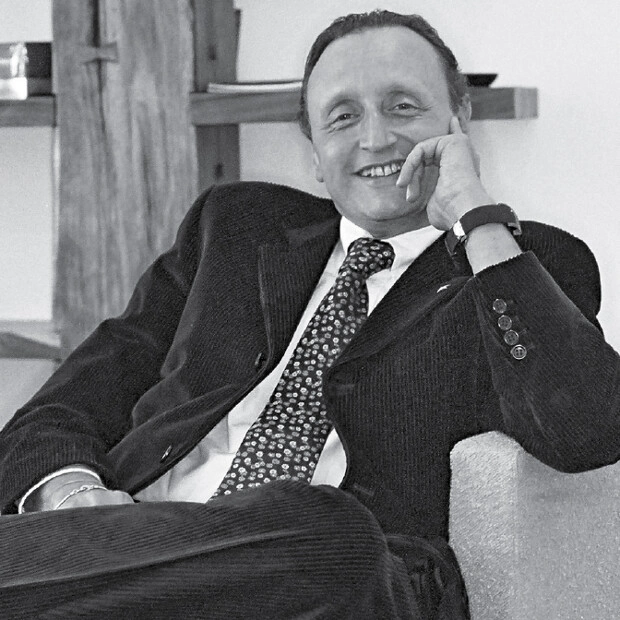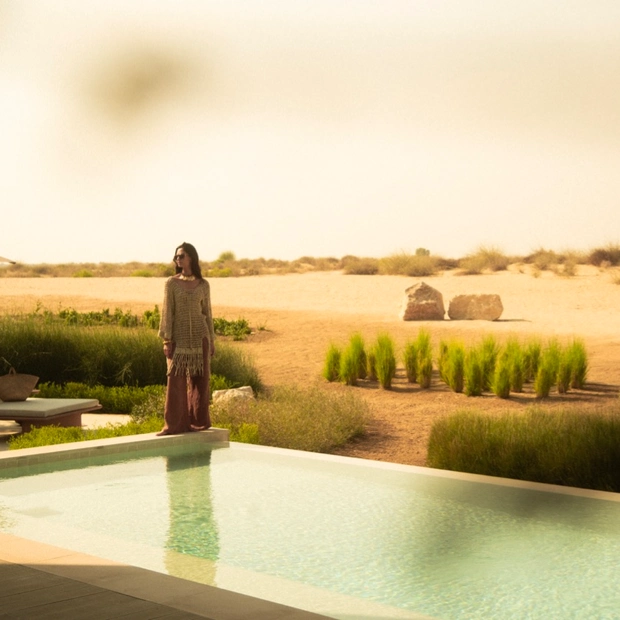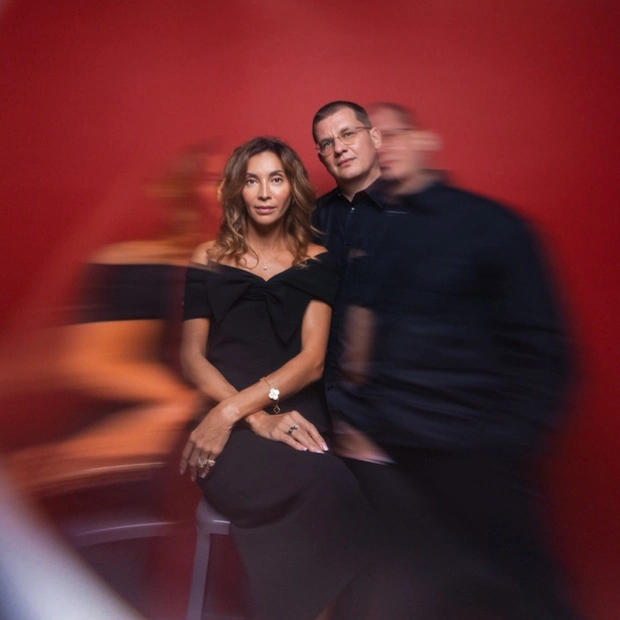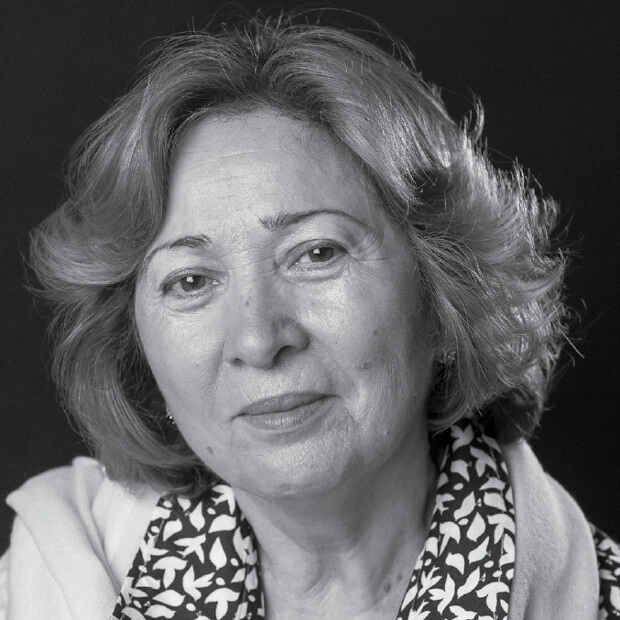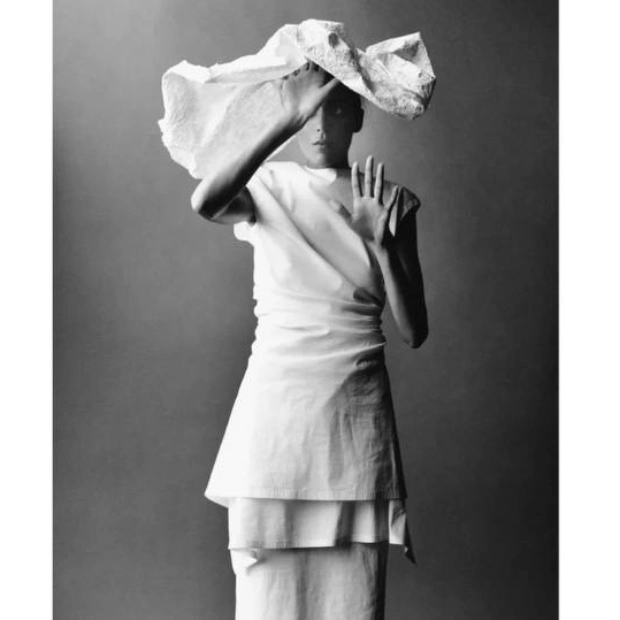Meeting of Minds
Effective communication forms the bedrock of successful interaction in any context, be it business, cross-cultural relations, or personal connections. In a world where globalisation and digital technologies are erasing the boundaries between countries and cultures, the ability to correctly interpret and convey information becomes critically important. The notion that the capability to communicate effectively and understand one another will become a valuable currency in the future is already proving itself true, asserts Susanna Kalantaryan, the director of Triple A Advisory.
The idea emerged simply, although the journey to it spanned a long decade. During negotiations, working in an investment bank and as a translator, I realised that people often spoke about the same thing but failed to hear each other. Communication broke down due to misunderstandings. It was easier to stop the topic of conversation than risk one's reputation by asking clarifying questions. People preferred to leave without completing the task.
The realisation struck suddenly: being an intermediary, translating from human-to-human language, is a valuable skill. The currency of the future will not be gold and diamonds, but the ability to communicate. Different cultures, upbringings, societies — all these hinder full-fledged communications.
My immersion in culture began in the fourth or fifth year of university. While finishing at the Institute of Foreign Languages in Armenia, I delved into the study of styles and customs of behaviour among different peoples. In the Middle Eastern region, the ability to read between the lines and communicate respectfully is ingenious. They convey information without negative feedback and assessments, which is crucial for building bridges between cultures.
When entrepreneurs started seeking access to new markets due to geopolitical situations, our assistance became sought after. We began with Asia: Singapore, Malaysia, Indonesia, then Japan, South Korea, and China. Gradually establishing communications, we helped people speak and listen to each other. Thus, our company was born.
The name of our company — Triple A Advisory — symbolises the highest grade in the British education system, akin to Oxford and Cambridge. It represents top-tier expertise and a striving for perfection. The three 'A's in our company logo, like three mountains, reflect three fundamentally important points for our company: Yerevan, Dubai, and Moscow. The logo, with its delicate thread, symbolises the path we carve out for our clients, guiding them through every stage of negotiations and meetings.
We place particular emphasis on collaboration with the Arab world. Since 2014, we have built trusting relationships that allow us to represent our clients with confidence. Before entering negotiations, thorough preparation is conducted to ensure both parties understand the goals and proposals. In the Arab world, it is crucial to articulate one's intentions clearly; otherwise, negotiations may fail or be perceived as a challenge.
The false belief that advanced technology and education can spark an industrial revolution in the Arab world often leads to disappointment. The first question we ask our clients is: who are your competitors? The answer "no competitors" raises concerns. It may indicate that the market has not been sufficiently researched or that the uniqueness of the product is overestimated.
At the beginning of 2022, a client facing challenges decided to expand their business in the Emirates. Confidence in a strong team and their competencies prompted them to create a vibrant presentation in an American style. However, the presentation's tone did not align with the expectations of the local audience. The first mistake was making comparisons: "Look at how poorly you are doing, whereas we have done this for such-and-such companies, and their sales have soared."
In the Arab world, blunt criticism is considered impolite and unattractive. Even if you are confident in your knowledge and skills, it is unacceptable to state this directly. This caused a negative reaction and became the first misstep towards successful negotiations.
Representatives of local companies are accustomed to reading between the lines and avoid negative phrasing. When they were offered assistance, they politely responded that it was interesting and useful but requested a technical specification for an open tender.
The company, lacking representation or a licence in the Emirates, attended a meeting with middle management. They created a technical specification, prepared tender documentation, and participated in the tender. Two weeks later, they received a call: a company from the same region had won, offering a similar solution at $200 less. The winner was not subject to dispute.
Disappointment grew when they learned they were required to provide a list of their team's competencies. In Russia, this would have caused bewilderment, but here they somehow agreed. Two weeks later, the winning company offered them a subcontractor role under their brand but at 60% less pay than initially proposed. Upon refusal, the team faced attempts to poach their employees.
Upon their return, they began recounting the dishonesty of the other party. But who is truly at fault? Reflecting on this story, one realises that the wonders from "One Thousand and One Nights" have a magical effect on our psyche and mentality. The world is multilayered, especially in the Emirates, where competition is ubiquitous. Perhaps some are better at certain things. Our engineering teams may be better educated, but it’s not just about education; it's about how it is presented. Respect for culture, customs, and even the nuances of conveying information is more important than competencies.
At the heart of intercultural communication lies the recognition of differences. Our mission is to build a bridge. We listen attentively to our client, convey information to the other side, and anticipate possible questions and misunderstandings. Only after this preliminary work can we shake hands and start building relationships.
People do not always know how to build relationships in the Arab world. Until trust is established, until bread is broken or a meal shared, a person is not considered one of their own. It is important for us that both Western and Eastern clients learn to interact. In many cultures, this is similar, except in American culture, where directness is historically ingrained. There, boundaries are set immediately.
In this part of the world, directness does not work. Here, it is important to know how to negotiate, assess conditions — it is part of the culture and everyday life. One must accept the rules of the game and understand that time moves differently here. The ability to slow down and have patience will help see a project through to completion.
That project took off after two and a half years. It was gruelling work and affected the psychology and mindset of our people. After the first meeting, the team felt deflated for two months, thinking they had been deceived. But after two and a half years, everything worked out as it should, and now everyone can breathe a sigh of relief, although there are still team members who feel they simply lost two and a half years. For us, it is a loss of time and money, whereas in that part of the world, it is an investment in the future.
Those starting a business in Dubai should take time to complete KYC — Know Your Client. It is important to determine who the client is, to whom and what is being offered. If entry into the Arab market is possible, one needs to understand who to sell to; if not, why not. Perhaps the product is unsuitable from a religious perspective. This does not mean abandoning the idea; it may require changing the model. Knowing the end customer among many nationalities helps assess market volume.
Secondly, respect for the Arab side is crucial. One needs to establish a company or representation locally — it is important to understand that your legal presence before engaging with a potential partner speaks volumes about you. Having a legal entity creates trust and guarantees safety for partners. They fear that without a physical presence, investors could back out and leave the country.
The third point is personal presence. Business with the Arab world cannot be built remotely. Zoom and other online communication methods are good, but for closing deals, personal interaction is necessary. Arabs prefer to see their partner, have coffee with them, eat dates, and shake hands. Only then can they decide if they can work together.
When the Dubai Expo opened, it presented incredible opportunities for showcasing business, culture, and artisanal traditions. The entire world gathered in this small enclave, providing a platform to discuss and engage with representatives from various countries. Over the course of six months, we facilitated around 450-460 business owners and executives from major corporations, introducing them to the right contacts.
It is important to note that our company does not handle the establishment of firms, bank accounts, or accounting services. We have excellent colleagues who assist in building the infrastructure for our clients. With the invaluable support of Dubai’s Ministry of Investment Development and our professional team, we provide experts from various industries.
Government structures in the Emirates operate differently from those in Armenia or Russia. One can easily attend a consultation and receive answers from individuals who have transitioned from consulting and private business sectors. They are well-trained and proficient in English. If they do not know the answer, they will certainly find the right person, be it a relative or a colleague from another department. There is competition between ministries, driven by astute leadership and ranking systems. The Sheikh of Dubai can disband a government institution if its ratings are not sufficiently high.
This competition enhances the quality of work, which benefits us greatly. Over two and a half years, 81% of our clients have localised in the Emirates, with 46% of them establishing companies specifically in Dubai. We meticulously track the numbers and successes of our clients, allowing us to take pride in our achievements.
For me, as someone who long perceived the Emirates merely as a land of luxury and an incredible Arab vibe, it was a revelation to discover an infrastructure different from what I was accustomed to. Recent events related to the rains and floods in April quickly brought this to light. Much misinformation and speculation suggested that the cause was artificial cloud seeding and poorly thought-out operations. However, this was far from the truth.
What astonished me was how the authorities communicated information to citizens, providing reassurance and support. Detailed explanations of the causes of events, the measures taken, and the ability to acknowledge mistakes were truly eye-opening. Such an approach is unparalleled in the Western world, Asia, Armenia, or Russia.
In the Emirates, the ability to negotiate plays a crucial role. The Dubai Future Foundation is a team striving not only to anticipate but also to plan steps for forecasting the future world and its vision through the eyes of Emiratis up to 2071. They realise their goal of becoming a country that attracts numerous happy and successful people. After all, happiness also encompasses the mental well-being of society. They understand that they will face challenges in the future, such as artificial intelligence, and are preparing for them.
At one meeting, discussions focused on working with the mindset of Emirati residents, particularly the natives. During the COVID-19 pandemic, it was essential to implement measures for maintaining distance so that people could work while observing isolation protocols. How do you explain to those accustomed to living in large families and engaging in heartfelt interactions that isolation is necessary for their safety?
The example of smart gates at the airport is very telling. People were used to human contact: someone taking their passport, wishing them a good day, smiling. The introduction of automated systems sparked a storm of emotions, mostly negative. It is important for local residents to feel attention and care even at such a level.
Now, upon arriving in Dubai, one can observe that alongside the smart gates, there are counters with controllers who accept passports, stamp them, and wish travellers a good day. This blend of technology and human interaction has emerged as a response to the needs of the populace.
The Ministry of Happiness assesses the level of residents' satisfaction, which may seem fantastical but works splendidly. In the Emirates, they have succeeded in creating a harmony that caters to each individual's needs, balancing innovation with tradition. The wise leadership in the UAE serves as a model to emulate.
For any entrepreneur, two things are paramount: the sagacious guidance of a mentor and inspiration, which sometimes arrives unexpectedly, like a ray of sunshine on a cloudy day. An encounter with someone whose personality and professionalism evoke admiration can change one's entire life. Working under the guidance of Gor Nakhapetyan was such a turning point for me. In my youth, when Armenia plunged into the darkness of the 90s, KVN (a popular Russian comedy TV show) was a beacon in that gloom. People would gather at the homes of those who managed to record the show, to laugh together and forget their hardships. Small converters and car batteries transformed homes into islands of light and joy — makeshift home theatres.
Years later, fate led me to Moscow, where Gor Nakhapetyan became my mentor. The inspiration from his intellectual humour and wise counsel became an integral part of my life. He taught me not to fear taking the first steps, to take risks, make well-considered decisions, and take responsibility. This ethical-cultural code, absorbed from childhood, laid the foundation for future achievements.
Gor Nakhapetyan is not just a leader. He is a businessman and philanthropist, co-founder of the SKOLKOVO Business School, Friends Foundation, and Sensemakers. To me, he is a teacher, friend, mentor, and comrade. A person to whom one can always turn for advice or share successes. His support and warmth inspire new accomplishments. Such visionary individuals are rare, but they change the world around them.
The Arab world is also full of such personalities. It is inspiring to see their ability to speak impromptu, propose ideas, and envision the future. Wisdom passed down through generations becomes the foundation for new achievements. When a country is led by visionaries, there is confidence that success is attainable. All opportunities lie open for those ready to move forward.
How does an entrepreneur's journey in Dubai with its opportunities become successful? Here, natural intuition is crucial. A good entrepreneur somehow always senses impending changes or can forecast several steps ahead. To move forward, one must part the reeds and ensure that there is solid ground beneath their feet so that their team can follow. Intuition, education, and the ability to tame one's ego play key roles. It is important to accept one's mistakes with dignity.
In the Arab world, there is no concept of failure. There is a saying: "We never fail, we always learn." Every mistake is a lesson. One should not point fingers and criticise. The person already understands their mistake and will do everything possible to correct it. The main thing is to give them that opportunity.
There is another proverb: "The knife of the family does not cut." It speaks to Oriental wisdom that does not allow airing one's dirty laundry in public. Here they follow the rule — never abandon your own in trouble — and expect an understanding from you that is difficult for people from Western cultures. If you wish to build business and long-term relationships, this boundary must not be crossed. Decisions are made based on different rules, and whether you accept these rules or not will determine whether you can be dealt with or not.
For me, the most significant indicator of personal success has been the recognition of my work by senior executives[SK1] in the Arab world. The swift signing of a partnership agreement with the department responsible for promoting investments in Dubai opened doors to new heights. The Ministry of Investment, Tourism, and Commerce provided support that ensured a reliable foundation. I take pride in my ability to build long-term relationships and the respect I garner among people in the Arab world. This enables me to attract clients and maintain dignity in all communications, regardless of circumstances.
When discussing other factors that contribute to a person's success, motivation must be mentioned first. In my case, it intensifies when I hear, "It’s impossible." Until you try it yourself and confirm that it is indeed impossible, you can’t give up.
In this regard, I am a perfectionist with straight-A-student syndrome. I will fight to the end for every client, every team, and every employee. In our team, there are colleagues who successfully develop their personal projects. It is crucial for a person within the team to grow and remain interesting both to themselves and to others, without burning out. Personal projects that inspire play a key role here. For example, aiding cultural communications and writing articles are part of my work.
We have a grand dream ahead — to open a school of communication in the Emirates. To teach people to live happily together despite political or climatic changes in the world. Everything ends eventually, but it is important to preserve hope and the ability to look up and meet each other's gaze. This skill can be developed and passed on to others. This goal inspires and propels us forward.
So, my current state of mind aligns with the Chinese saying "standing in the draft and catching the wind." It is that moment when you realise you have reached a professional and personal level where fear of change and decisions dissipates. The ease of decision-making has become second nature, and our plans are grand. We want to teach people about the communication process in the Arab world, where 200 nationalities live, but business is often conducted within diasporas. Relationships between them are rare, limiting potential. Diasporas prefer interaction with representatives of their own culture, complicating intercultural connections. Historical and cultural differences create barriers. Stereotypes and clichés formed by Western and Eastern information fields hinder understanding. Creating a project capable of breaking these stereotypes and establishing a new space for people to interact would be a great joy. And of course, I will strive to preserve myself, move forward, and build bridges wherever I may be.
[SK1]The word Leader implies to the rulers and to mention them it is advised to apply for protocol permission every time

Text: Lara Palmer
29.10.2024
The notion that the capability to communicate effectively and understand one another will become a valuable currency in the future is already proving itself true, asserts Susanna Kalantaryan, the director of Triple A Advisory.
